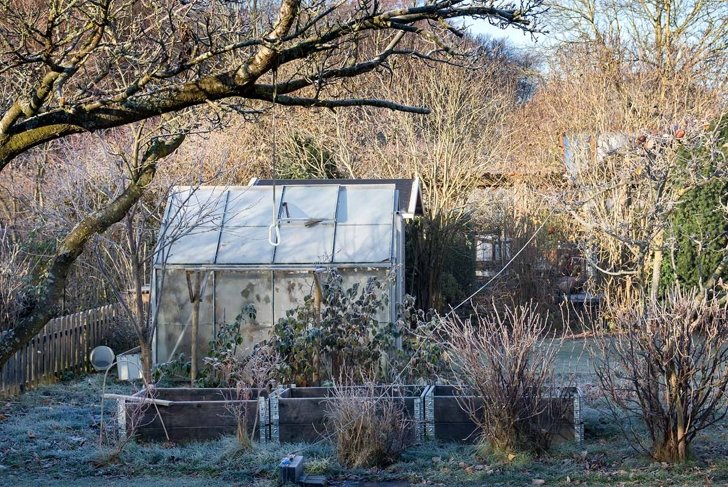
As winter approaches, gardeners everywhere start to count down the days until the new planting season begins. While you might be excited to browse through the seed catalog or brainstorm a new garden design, there are steps you should take heading into the winter months to ensure your spring planting goes off without a hitch. Not only will you continue to reap the health benefits of gardening well into the colder months but your buds and blooms will fare better in the spring if you get your garden ready for winter.
01
Clean up your perennials
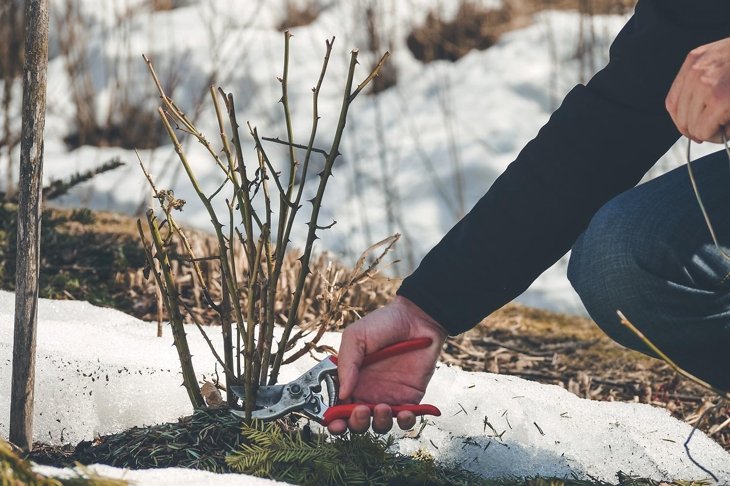
If you grew any plants that are expected to return next year, make sure you’re preparing them for colder weather. Certain perennials should be cut back while others can remain to provide fertilizer, shelter for pollinators, and winter seeds for birds. Now is also the time to pull up annual plants as they won’t return next season, but you can put those organic annuals to good use by composting them.
02
Dig up diseased and weeds plants
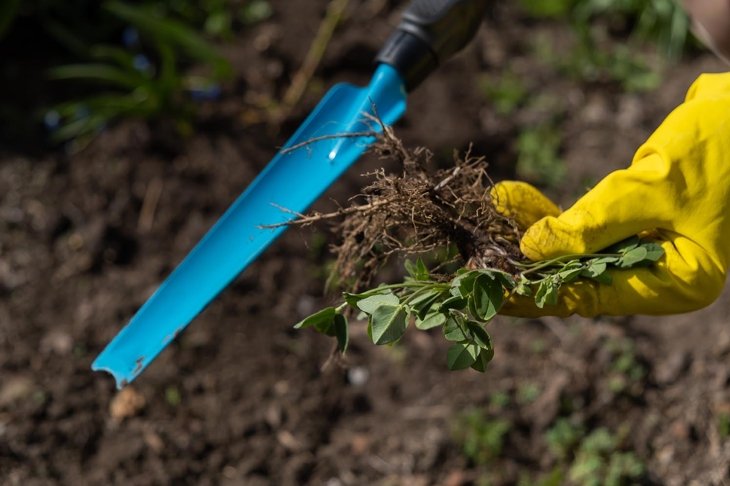
Check for signs of rot, disease spots, or destructive bugs among your plants, as well as weeds. If a plant is diseased, make sure you dig it up. Unfortunately, these plants shouldn’t be composted and need to be thrown out. While you can take these steps in the spring, it’s advised to go through the process before the warmer weather approaches. It will save time and resources during planting season, and you won’t run the risk of a disease reaching your plants before you can get to them next year.
03
Check your soil
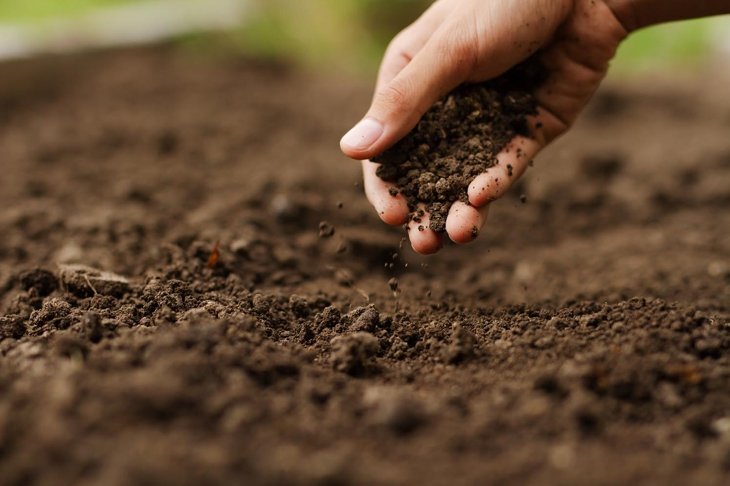
Now that you’ve gotten rid of plants that cause problems, you should test your soil to make sure it isn’t contaminated and has the appropriate nutrient levels. There are testing kits available at local garden stores or online, but you can also have your soil tested by a professional. Kits and professional testing are relatively inexpensive, and instructions are easy to follow. Soil tests will measure your soil’s pH and examine the level of macronutrients, such as potassium, nitrogen, and phosphorus. If your soil is off, it will most likely be easy to remedy such as adding composted manure or fertilizer.
04
Make your own mulch

Still using your leaf blower and brown paper bags to rid your lawn of fall leaves? It’s time to put those leaves to work instead. Dried leaves are filled with nutrients. Once the fallen leaves have dried out on the ground, the easiest way to turn them into mulch is by running your lawn mower over them. While shredded leaves are best, if you use whole leaves as mulch, apply a thin layer throughout your garden.
Spread leaf mulch and organic compost around your garden
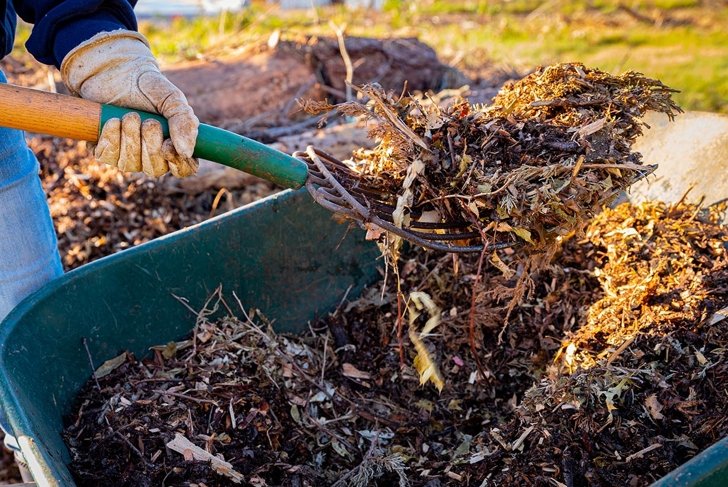
Reap the benefits of spreading mulch and compost now instead of waiting until spring. Not only will this protect the soil from harsh winter weather, but it provides fertilizer for plants as they come out of dormancy. Once your mulch is prepared, spread it around the base of shrubs and trees and throughout your garden. You can also work it into the soil of your garden beds to provide nutrient-rich compost for the upcoming growing season.
05
Disinfect and sanitize your workspace
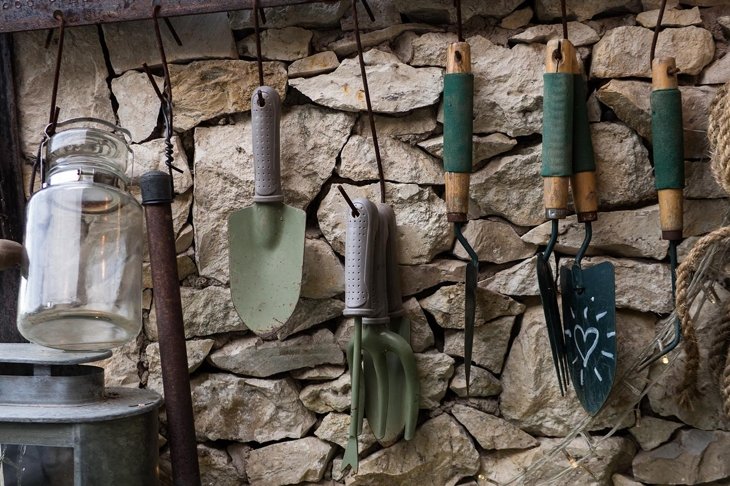
Because your tools and workspace may contain harmful remnants of diseased plants or contaminated soil, it’s important to clean everything at the end of the season. Soak tools and flowerpots in warm, soapy water to remove debris. Wipe down tables or workbenches. Once clean, make sure you disinfect everything. Make sure everything is dry before storing for winter. During this step, you can also reorganize your shed or tool storage system.
06
Map your spring planting plan

Now it’s time to get creative. If you want to rearrange your garden bed, there are numerous garden planners or online programs you can use to design a new plan. You should also make a list of the plants, seeds, and other gardening supplies you need for the upcoming season. Winter is also a great time to create a plan for natural weed control so you don’t feel pressure to run out and grab synthetic weed killers when those pesky plants start to pop up.
